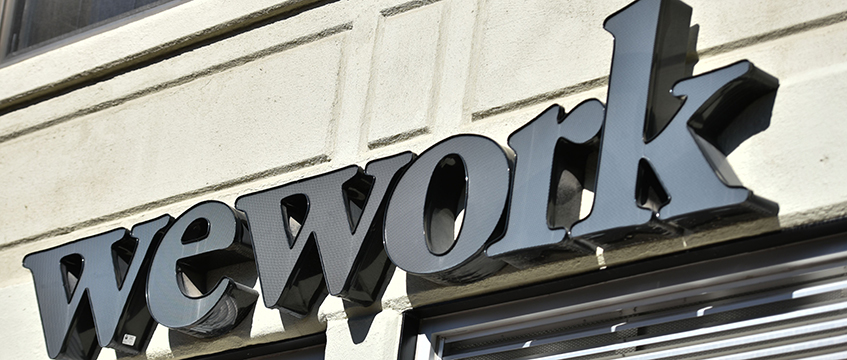WeWork’s shares rose in early trading on the New York Stock Exchange this afternoon, as the flexible office giant brought an end to its tumultuous two-year journey to go public.
Operating under the ticker WE, shares in the company were valued at $10.98 after US markets opened on Thursday, up nearly 6% on their initial value.
The initial public offering has valued the company at about $9bn (£6.5bn) – a fraction of the $47bn valuation given by chief investor Softbank months before its failed IPO in 2019.
That first attempt to list two years ago was rejected by investors, many of whom thought the company was overvalued and had corporate governance issues.
Since then, WeWork has slimmed down its business model in a bid to reassure investors that it is on the road to profitability, following founder Adam Neumann’s ousting.
That process has included cutting thousands of jobs, slashing the number of offices it runs by hundreds (including 150 during the pandemic) and cutting $2bn of costs.
It has reduced annual rent and tenancy expenses by about $400m, and got rid of its non-core ventures, including WeGrow, WeLive, Fieldlens, Meetup, Managed by Q.
Unlike the relative newcomer Neumann, current chief executive Sandeep Mathrani is a real estate veteran, having previously run shopping mall operator GCP. When Brookfield bought GCP in 2018, Mathrani then took charge of the US giant’s retail property management arm.
Nonetheless, WeWork still lost $3.2bn in 2020, in a year when the Covid-19 outbreak hobbled the flexible office market across the globe.
The company hopes that a swift rebound post-pandemic will guide it to profitability in 2022, after revenue came in at just under $1.2bn in the first half of this year. It is expected to come in at $1.5bn in the second half.
Researchers at Green Street Advisors have projected that flexible office space in the US will grow from 2% of the office market to 10% by 2030. And in the UK, data from Instant Group showed that demand for flexible workspace rose by 37% for the six months to 17 June, compared to the same period last year.
WeWork’s IPO has come via a merger with US company BowX Acquisition, a listed special purpose acquisition company.
The flex giant received $1.3bn from the BowX deal, including a $150m investment from Cushman & Wakefield that functions as a backstop to shareholder redemptions.
SoftBank, which rescued WeWork from bankruptcy two years ago, has provided a $550m senior secured note.
Investors such as Starwood Capital Group, Insight Partners and BlackRock have also committed $800m through a private investment in public equity.
To send feedback, e-mail alex.daniel@eg.co.uk or tweet @alexmdaniel or @EGPropertyNews











